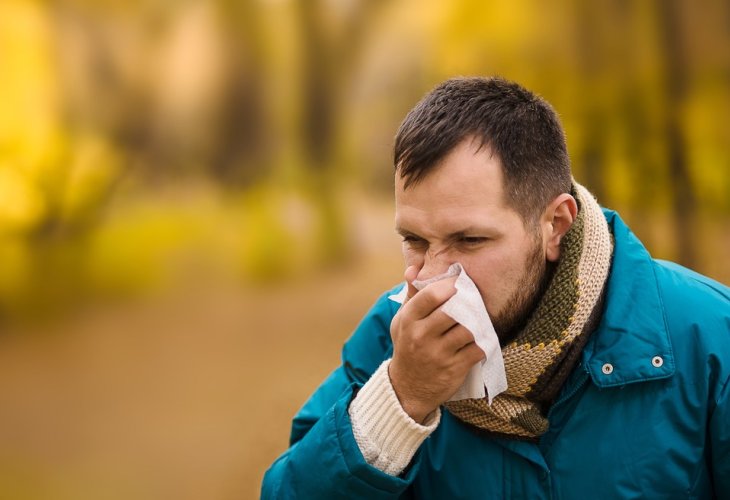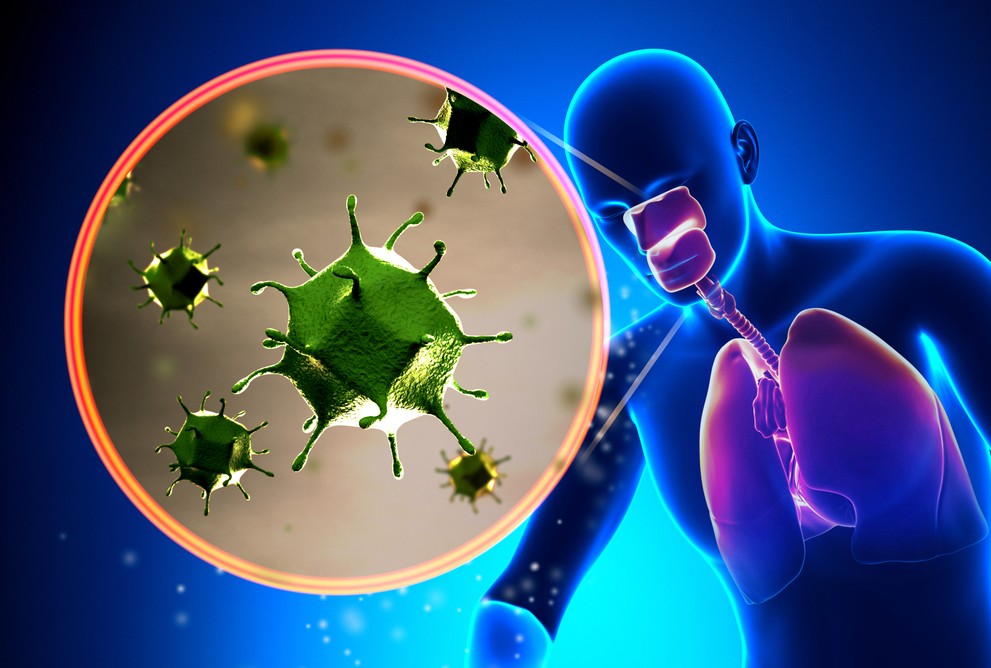Already Caught a Cold? Here's How You Can Reduce Your Seasonal Allergy Symptoms
6 Important Tips to Prevent Common Allergies During Seasonal Transitions
 (Photo: shutterstock)
(Photo: shutterstock)The transition period between heat and cold presents increased exposure to seasonal allergies. This is mainly caused by exposure to pollen grains from plants and flowers, especially grass pollen. The body's exposure to pollen occurs due to pollen released from blooming plants, carried by wind or insects, aiming to pollinate other plants of the same kind. When the pollen is transferred to us in the air, it can cause an allergic reaction. Exposure of the body to allergens leads to increased activity of the immune system and various symptoms, including sneezing, runny nose, itchy and swollen eyes, and other allergy symptoms. To get through the transitional season safely and with minimal symptoms, especially for those suffering from seasonal allergies, it's important to strengthen our bodies. This can be done by incorporating a proper diet, physical activity, and other measures that will help us better cope with allergens in the upcoming fall season.
Lital Feingeretz, a clinical dietitian at Studio C, provides you with six tips on how to better prepare for the transitional season, so you can reduce the symptoms of seasonal allergies:
1. Prefer to keep your home and car windows closed, and use air filters
When car and house windows are open, pollen particles can enter and settle in various areas of the house: the sofa, carpet, and other furniture, leading to overexposure to allergens, triggering the immune system, and increasing allergy symptoms. Therefore, it is recommended, especially during the transition season, to keep the windows of the house and car closed. However, using air filters throughout the house can help keep the home free of allergens. It's advisable to change the filters frequently.
2. Adopt a Mediterranean diet
The Mediterranean diet is based on enriching your diet with vegetables and fruits, consuming unsaturated oils such as olive oil, and consuming deep-sea fish rich in omega-3, legumes, nuts, seeds, and whole grains. This diet is low in red meat, processed foods, and sweets. Some studies have shown that a Mediterranean diet can help people suffering from allergies, especially children. A study examining the dietary habits of children on the island of Crete, Greece, found that among 700 children aged 7-18 who consumed fresh fruits and vegetables at least twice a day, there was a lower incidence of allergies: allergic rhinitis, asthma, and respiratory sensitivity.
3. Green tea may help "combat" allergies
Recent studies show that drinking green tea may help alleviate allergy symptoms. The compound EGCG found in green tea is an antioxidant that suppresses allergies by blocking a cellular receptor involved in the allergic response and stopping histamine release. Therefore, if you have allergies, you should consider drinking it. However, note that green tea contains caffeine and tannins (antioxidants), and it is not recommended for those allergic to these components.

4. Drink water to regulate the immune system
Water makes up 70% of our bodies and plays a crucial role in bodily functions. Water maintains body temperature, protects internal organs, and is responsible for removing waste and toxins from the body. Adequate water intake helps regulate immune system activity in allergic conditions. Histamine, a substance released in response to allergen exposure, stimulates immune system activity. In the situation of dehydration, histamine is released in large quantities, causing excessive immune system activity and more severe allergic reactions. Therefore, it is recommended to ensure adequate water intake.
5. Maintain adequate levels of Vitamin D
A study published in the Journal of Allergy and Clinical Immunology in 2011, which involved more than 3100 children and adolescents and 3400 adults, found that low blood vitamin D levels are associated with an increased likelihood of developing allergies in children and adolescents. No such link was found in adults. Among children and adolescents, a connection was found between low vitamin D levels and sensitivity to 11 out of 17 allergens examined, including environmental allergens like ragweed and oak, and food allergens like peanuts. Therefore, children and adolescents should consume enough vitamin D. The recommendations are to consume 600 International Units (15 mcg) of vitamin D daily to prevent vitamin D deficiency. Vitamin D is produced in the skin by exposure to sunlight. Factors affecting its production include sun exposure time, cloudy weather, geographic location, and body mass and area exposed. Vitamin D produced in the skin becomes active through a metabolic process occurring in the liver and kidneys. Foods containing vitamin D include mainly sea fish such as salmon, tuna, mackerel, sardines, sole, and fish oil, as well as liver and eggs from poultry fed with vitamin D. Fish suitable for children include salmon and sole (sole fish, for instance, has no bones and no skin).
6. Enrich your diet with foods high in omega-3 fatty acids
Omega-3 is an essential fatty acid that we need to obtain from food. It is also known for its anti-inflammatory and chronic inflammation properties. Inflammation plays a significant role in the allergic response. By adding omega-3 to your diet, you can help prevent inflammation formation and reduce allergy symptoms. It is recommended to enrich your diet with fish oil or sea fish, including salmon, mackerel, tuna, and herring, as well as flaxseed and walnuts.

